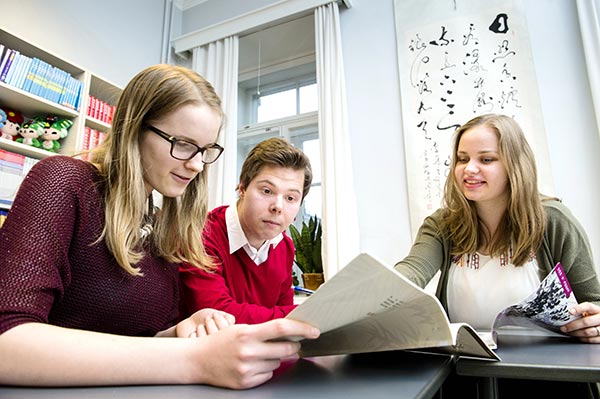 |
|
College students learn Chinese at the University of Helsinki's Confucius Institute in Denmark. [Photo by Zhong Xin/China Daily] |
Inspired teaching
In another program, Jain's team took history, art and sign language teachers to Dunhuang and had each of them create a lesson to bring Dunhuang into the classrooms of California's public schools.
Among them was the Mexican-American teacher, Marisela Ruiz, who taught social studies to students of the sixth grade at a school in the US where all of the students speak Spanish.
Some of their families lived in small apartments with 10 to 15 people. One of her students once told her that his bed was under the kitchen table because there was no other spare space.
Thus, on seeing Dunhuang which was abandoned for years until the beginning of the 20th century, the teacher created her lesson around the idea of "a sacred space" and what makes it special. She wanted the students to know that they could have their own special spaces despite their home situations.
Last year, she attended a six-week summer course about Dunhuang in another poor neighborhood where most students were from African and Latino communities and about one-third of the students had no parents and were in foster care.
Again, she used the idea of Dunhuang being a special place and one where people from different cultures came into contact with one another, to tell the children that it doesn't matter who they are and what kinds of life they are leading, they are still special.
The kids were taken to the Dunhuang exhibition and introduced to the dances, music and the different instruments that might have been encountered along the ancient Silk Road.
For Jain, an important goal of these public programs was to move the thinking of Dunhuang away from being simply "pretty paintings on the wall", but also a place of inspiration for global culture in the 21st century.
"If I want to get people interested in China, an artist can communicate a lot. Besides, I think artists have a way of reflecting contemporary ideas and pushing things that other people don't," Jain says.